Chuck Owen, the great composer-arranger who spent his career in the Jazz Program at the University of South Florida, retired in 2021.
Music writer Eric Snider chronicled Chuck’s musical journey for Creative Loafing. I wanted to share that story with our Palladium audience and wish Chuck Owen all best wishes in his retirement.
Lots of top jazz students and artists were drawn to USF’s program because Chuck was there. And along the way, Chuck was nominated for seven Grammy Awards, not bad for a guy based in Tampa, Florida.
Here’s Eric’s story. To read the full story on the Creative Loafing site, please follow this link.
By Eric Snider/Creative Loafing
Originally published Dec. 16, 2021
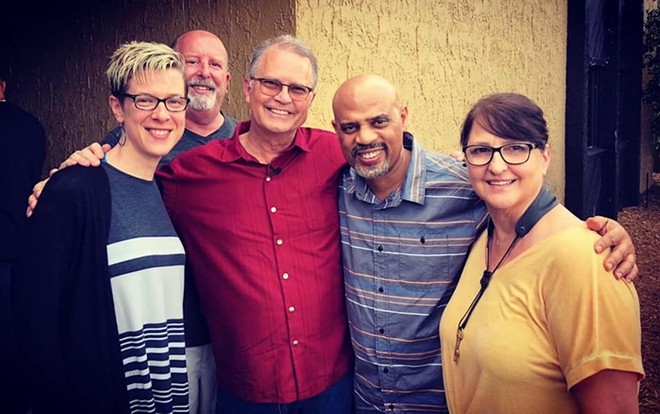
It’s all but impossible to state definitively which Tampa Bay artist has notched the most Grammy nominations, but a good bet is Chuck Owen. Between him and his Jazz Surge band, he has seven.
Awards like Best Arrangement, Instrumental or A Cappella; Best Instrumental Composition; and the plum thus far—Best Large Ensemble Jazz Album for 2017’s Whispers in the Wind—are not deemed sexy enough for the Grammy TV broadcast. But they’re pinnacle achievements in Owen’s chosen milieu.
Then there’s the nagging little issue of Owen never having won. “Well, there is that,” he says wryly, but you sense that his lack of statuettes does not give him too much agita. “It’s not why we do it,” he says of Grammy recognition. “But it is nice—especially seeing as we’re not in New York or L.A.—to know that people value what we do.”
Owen, 67, ran the jazz program at USF from 1981 to his retirement this year. The composer/arranger operates in a subgenre of jazz commonly called big band—which often gets a bad rap, and often deservedly so. The music at its most fundamental is characterized by a large, specific configuration of horns combined with a smaller rhythm section. At its worst, big band music is strident, marked by blaring horn-section parts and generally short solos—which are played mostly on horns. It swings in a rote, archaic fashion.
This is not the kind of music Chuck Owen & Jazz Surge make.
The “big band” tag tends to repel most jazz enthusiasts, myself included. At the onset of our interview, I told Owen, who I’ve known casually for quite some time, that I “hate big band, but I actually like your new album quite a lot.” (He responded with a knowing laugh.) Within Us, released in September, has served to pry open my mind to the genre’s potential.
“I think ‘orchestral jazz’ might be a better way to put it,” Owen posits. “Plus I’m not sure that people under 50 even know what big band is.”
Owen’s orchestral jazz is complex and challenging, but melodic and intrinsically listenable. It employs a panoply of rhythms beyond swing. The music incorporates elements of classical, rock, blues, Latin and more, and features a consistently intriguing flow of texture and color. There are solos aplenty, of course, but it’s not the music’s raison d’etre, as it is in small-group jazz. Owen also breaks from big-band orthodoxy by featuring atypical instruments: two guitars, violin, Dobro, accordion, hammer dulcimer, harmonica.
The process Owen employs to create his opuses is long and painstaking. It generally starts with an overarching concept. Within Us celebrates Jazz Surge’s 25th anniversary “by looking back on this band and our accomplishments and various milestones,” Owen says. Within that larger idea, however, is “American Noir,” a tune that contemplates “the political climate, the lack of sense of what truth is, and how a lot of things don’t seem very American,” Owen says. “So I employed the notion of film noir—cynicism, unease—yet there’s still a sense of positivity.”
Owen writes the pieces alone, using a piano and score paper, never audio-recording any of his ideas. “I’m a pencil-and-paper person,” he says, with a hint of pride. The compositions often include several movements, each with a discreet melody.
Owen then pens arrangements for his 20-plus-person ensemble. He makes a flurry of decisions about how instruments combine at any point in the piece, be it a full flourish of horns, a creamy blend of just trombones and alto flutes, a shimmering solo violin, a quiet transition into another phase, a splash into a crescendo, and on and on. Question, questions: What’s the rhythmic feel? Where do the solos go and with what instrument? When does the ensemble come back in and in what configuration?
It all amounts to creating a gargantuan sonic jigsaw puzzle. “At this point I’m hearing the orchestra in my head while I’m at the piano,” he explains. Owen then writes out a score of every part for every instrument—so, y’know, each musician will know what to play. “During COVID, I started taking long walks most days,” he says. “And I used those walks to sing through the pieces”—not out loud, in his head—”‘How should this sound and where should it go?’ It’s great to step away from the piano and sing it from front to back.”
How long does this arduous series of tasks take? “Forever,” Owen quips. His magnum opus, 2013’s River Runs: A Concerto for Jazz Guitar, Saxophone and Orchestra, took a year-and-a-half, much of it eight-hour days.
Owen then has to organize the recording session, usually at Morrisound Studios in Tampa. Co-owner Tom Morris has engineered all of the band’s sessions from the beginning. About a third of the pros in Jazz Surge come in from out of state, so Owen has to arrange scheduling and travel. A day of rehearsal is about all Owen can count on. Then it’s on to the business of recording—all 20-plus musicians playing live in real time. Within Us required about 18 hours over three days, a remarkably efficient use of time considering the complexity of the music and size of the ensemble.
Chuck Owen got his very first break in music thanks to a high school band director who didn’t give a shit. Owen played piano and trombone, and was part of the jazz big band at Wyoming High School in Cincinnati. “In my junior year we got a new band director who disdained the jazz ensemble,” he recalls. “He basically turned it over to the students.”
At that time, the early-’70s, a more hands-on director would likely have drilled his band in the fusty swing-era styles of Glenn Miller, Benny Goodman and the like. Instead, Owen recalls, “the senior who had taken over the band said, ‘Chuck, would you write some more modern stuff?’ I had never done it, but I knew [music] theory, so I figured ‘why not?’ I was kind of a shy, risk-averse kid in many respects, but in this case I was willing to take on the risks.”
Owen pored over the horn-driven rock of Chicago, Blood, Sweat & Tears, and Earth, Wind & Fire, writing arrangements of their songs for the 18-piece high school band. “I was essentially listening to the horns from the records and sorting them out, transcribing what I heard,” he explains. “There wasn’t anything terribly creative going on.”
Owen took over informal directorship of the ensemble in his senior year, which meant conducting its performances. “Looking back, I was terrible, but at the time, I thought I was doing a pretty good job, being showy with it,” he recounts. “I had my paisley bell bottoms and ruffled shirts, and was up on a pedestal. After one concert, the choral conductor came to me afterward and said, ‘I enjoyed the concert, especially the way the lights glimmered off your open fly.'”
Owen and his parents made the usual college visits, one of them at Indiana University, where they met with a music professor who told them, “No matter what you do, don’t become a music major.”
“I just wasn’t confident enough to argue with my parents about going to music school,” Owen recalls. “The notion was that music was a tough life. I bought into that, too.”
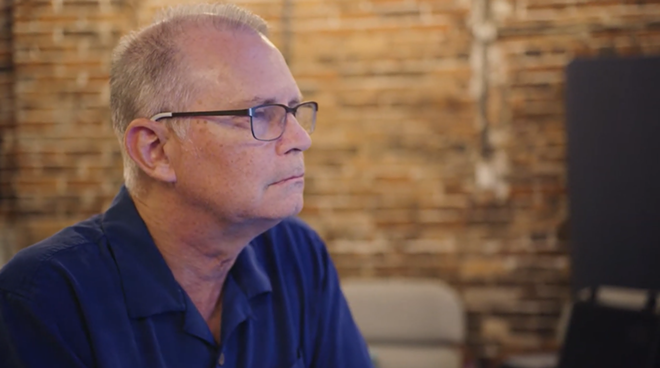
He matriculated at College of Wooster, a private liberal arts institution an hour south of Cleveland, as a biology/premed major. That lasted a year. He then transferred to North Texas State University, one of the largest jazz incubators in the country. A whole universe opened up. “The talent pool when I was there was remarkable,” Owen recalls. “When I wrote for big bands, I’d finish writing a chart and it was played the next day by one of the [college’s] several bands. There’s no better way for a writer to learn.”
In deference to his parents, Owen signed on as a music education major, although, he says, “the last thing I wanted to do was be a public school music teacher.” The curriculum required him to learn a wide array of instruments—the goal being that he become just proficient enough to teach the basics to students. Oboe gave him the most problems, but he dug the bassoon. That basic training, he says, helped him hear in his head how instruments fit together.
Because Owen wanted to write for films, he entered Cal State Northridge near Los Angeles as a grad student, putting him closer to the action. While there, he interned for the prodigious TV composer Patrick Williams, who threw him a few bones writing pieces for the likes of “Lou Grant” (1977-1982) and “The Last Resort” (1979-1980). As a freelancer, Owen penned a couple of tunes for “The Tonight Show” band (Doc Severinsen was the leader, Johnny Carson the host) to play in and out of commercials. “I did see a little check for that,” Owen muses. He also led his own big band in L.A., the most rewarding part of his tenure there.
Ultimately, even the smidgen of composing he did for television showed Owen that the process was too formulaic for him. “I’m a more reflective writer, and working in TV you crank it out,” he says. “The timeline is very quick and you have to meet the desires of several other people.”
Owen says he never got the opportunity to write music for film.
It was the early-’80s, and Owen was married with an infant daughter when he heard about a job opening at the USF music school. “I loved the idea of both academia and composing,” he reflects. “And my wife at the time really wanted out of L.A. The USF job looked ideal.”
It turned out to be so.
Owen joined USF as assistant professor/director of jazz studies in 1981. Looking back, he says, “I’d say my biggest accomplishment was constructing a jazz studies curriculum and bringing in adjunct faculty.”
Owen had a fulfilling and productive career at USF—ascending to Distinguished University Professor—and played a key role in the university becoming a well-respected institution of jazz education.
Owen frequently deals with the misconception that Jazz Surge is a university band, consisting of students. Not so. As such, Owen has had to finance his projects. He’s become expert at landing grants, but also has to reach into his own pocket to help pay the musicians, for studio time and other expenses. Owen says the budgets for the Jazz Surge projects have generally ranged from $25,000 to over $50,000. River Runs reached into six figures. And it should be noted: These numbers do not factor in the countless hours that Owen personally pours into each project.
“If I kept track of the number of hours for these projects, I’d probably never write another note,” he says with a chuckle.
Owen decided to retire from his USF post, because, “I’m in good health and want the chance to do other things that were shunted aside because I didn’t have the time—music projects, playing piano, getting out in nature, spending more time with my [five] grandkids. I’ve been working on a young adult novel for a year and a jazz composition book. I now have the time to do this stuff. And I can afford to do it. I’m healthy and alert and energetic. The time is now.”
Spoken like a man who may have left his regular day gig but has most certainly not retired.
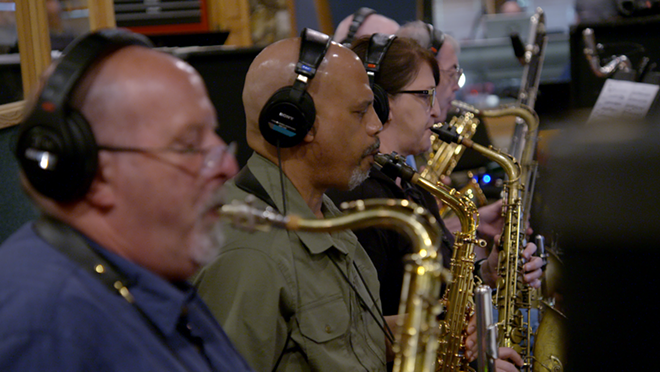

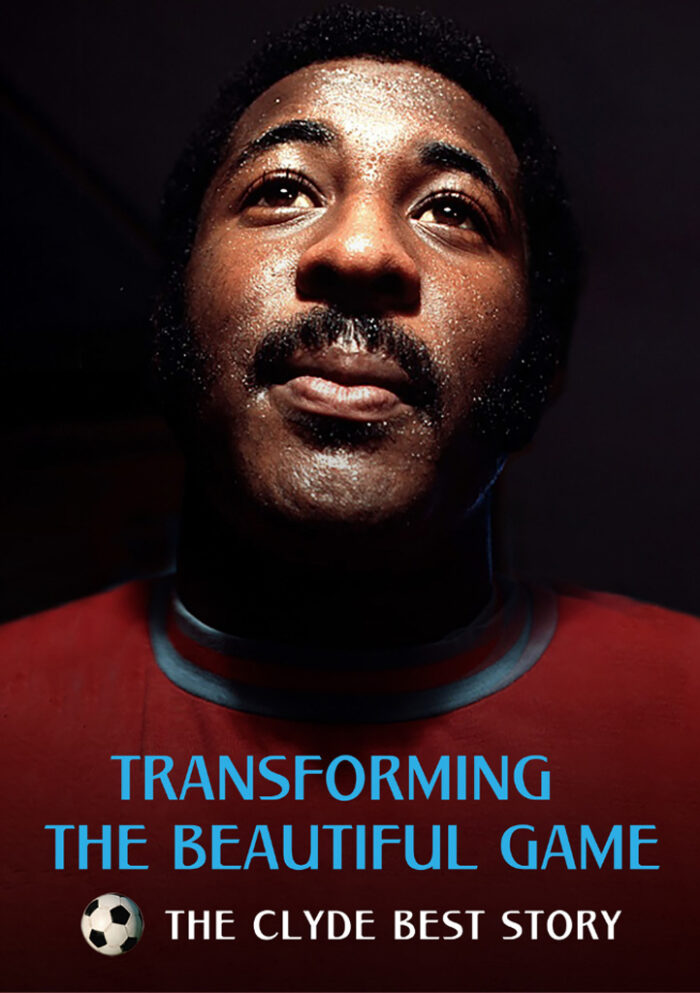

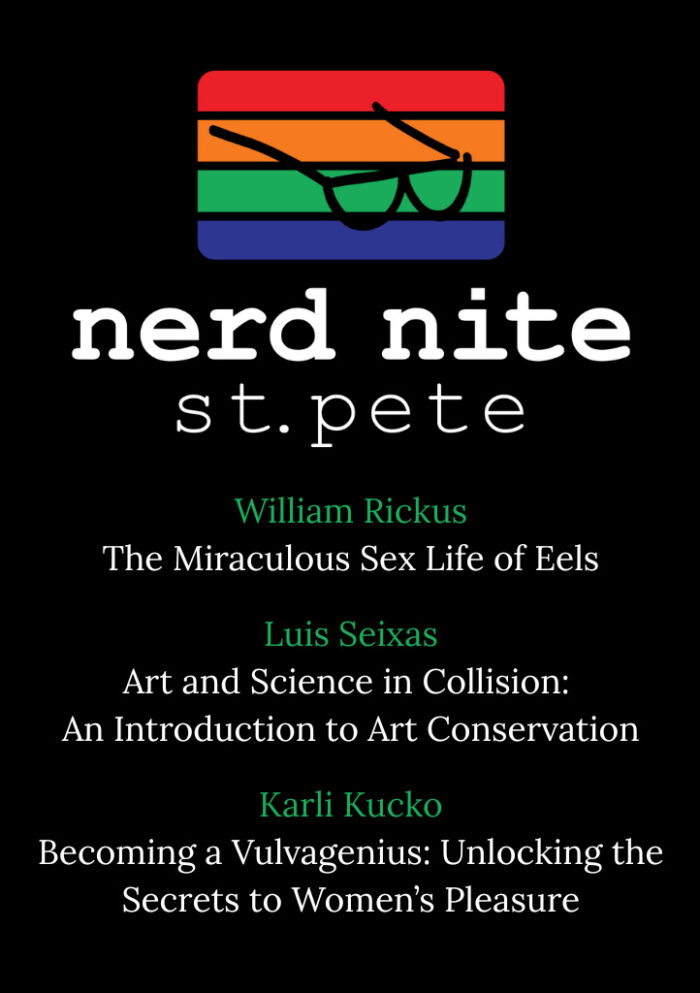
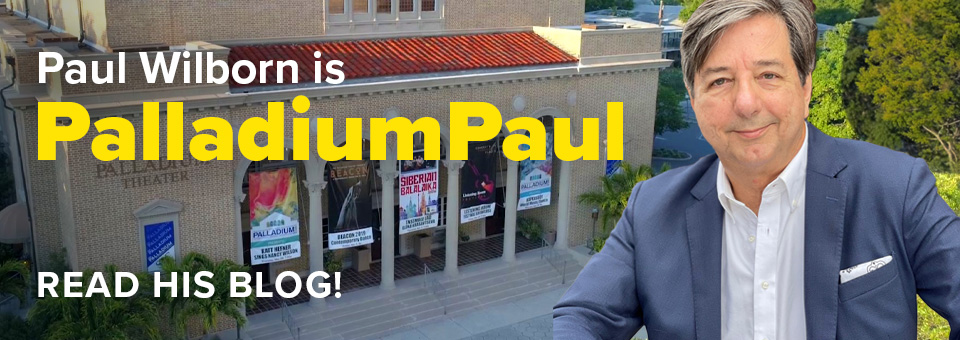


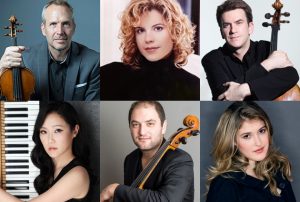
Leave a Reply